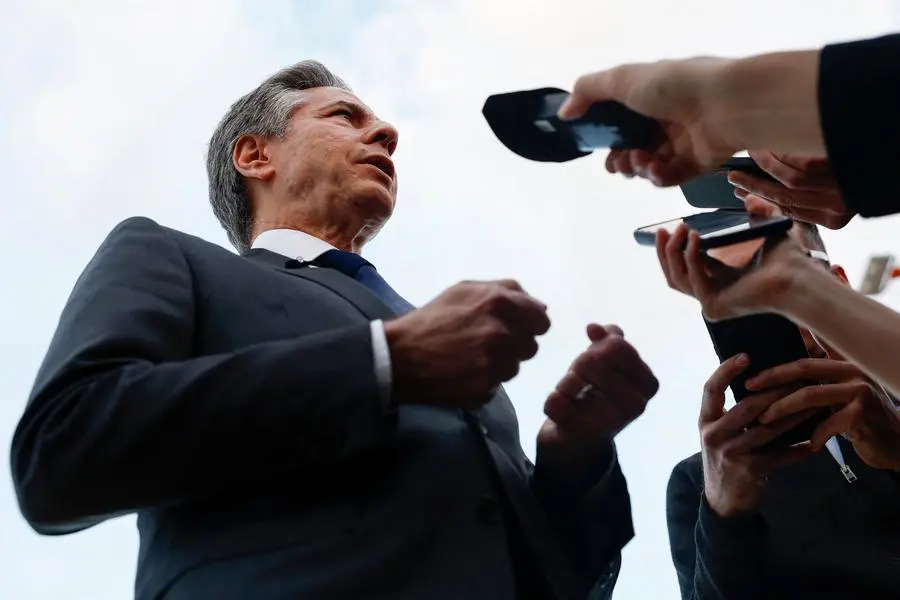PHOTO
US Secretary of State Antony Blinken on Friday hailed "increasing alignment" between Brussels and Washington in their approach towards China, especially in the fields of microchips and green technology.
"What we've seen over the last three years is increasing alignment in our approaches to these issues. And when the United States and the European Union are aligned, when we're working in common purpose... it makes a big difference," Blinken said after attending an EU-US meeting on trade and technology in Belgium.
The EU-US meeting is a forum for the big economies on each side of the Atlantic to hammer out their differences and to lay groundwork for the formulation of joint Western positions in the trade and technology spheres.
Together, the EU and United States represent around a third of global GDP, while China represents some 16 percent, calculated on purchasing power parity.
In nominal terms, the EU and United States together account for some 44 percent of global GDP, and China around 18 percent.
While Washington has taken a more aggressive stance against Chinese imports in several areas -- much of which is guided and backed by the deep-pocketed Beijing government -- Brussels maintains it is pursuing a more prudent "de-risking" strategy of lessening reliance on Chinese products.
On Friday, during a visit to China, US Treasury chief Janet Yellen warned that Beijing's subsidies for industry could pose a risk to global economic resilience.
She expressed concerns about China's "overcapacity" undercutting American and other countries' companies.
Following the EU-US meeting in Belgium, EU trade commissioner Valdis Dombrovskis highlighted the "economic clout" transatlantic cooperation brings to "developing resilient supply chains in the area of semiconductors".
"It's very clear that in... very complicated geopolitical circumstances, it's actually very important that EU and US work together as strategic allies," he said, without naming China.
The European Union's antitrust chief, commissioner Margrethe Vestager, said Brussels forged its own stance and that was presented during the meetings with US counterparts.
"I think that strengthens us -- it is not against someone. It is really pro-cooperation, and I think we have actually delivered," she said.





















